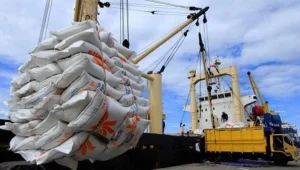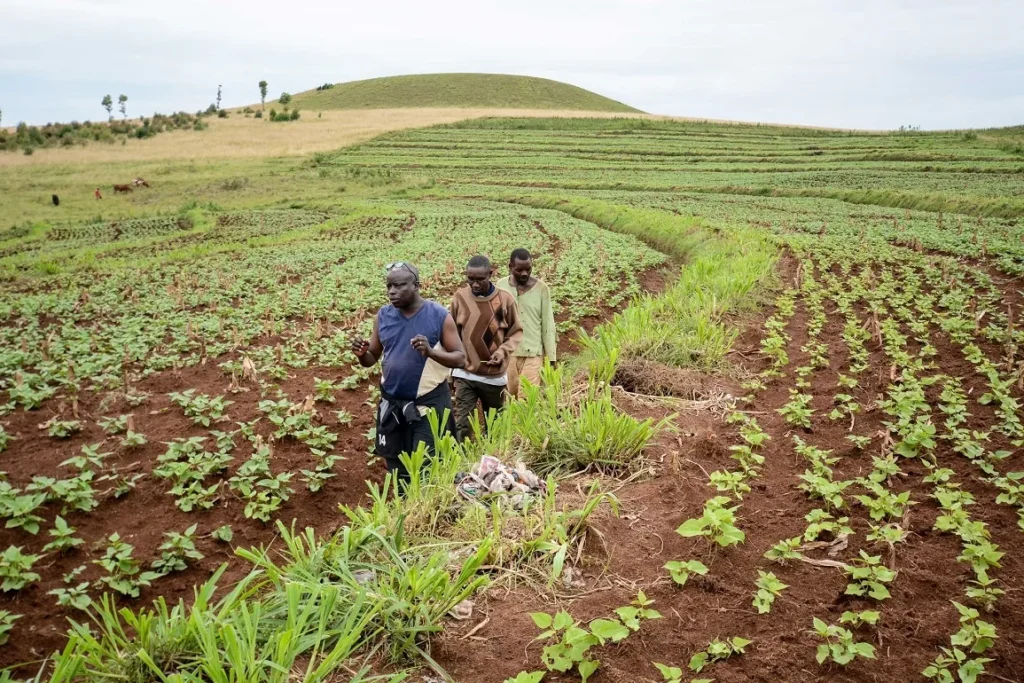Nigeria could spend a staggering $110 billion on food imports in 2025 if it fails to adopt digital agriculture solutions, according to a dire warning from the Sasakawa Africa Association (SAA). The nonprofit organization, which promotes sustainable agricultural development across Africa, raised the concern during its Digital Agriculture Forum held in Abuja.
The group stressed that without immediate reforms and investments in modern agricultural practices, Nigeria’s dependence on imported food could escalate sharply, undermining food security and depleting foreign reserves at a critical time for the economy.
Digital Agriculture: The Missing Link
At the forum, stakeholders called for an urgent transition to digital agriculture, which involves integrating data analytics, satellite monitoring, artificial intelligence (AI), smart irrigation systems, and mobile-based platforms into farming. SAA Regional Director, Dr. Godwin Atser, emphasized that only a digitally driven food system can sustainably meet the rising food demand of Nigeria’s rapidly growing population.
He noted that while Nigeria has one of Africa’s largest populations and abundant arable land, poor mechanization, outdated farming techniques, and low adoption of digital tools are hampering productivity.
“We cannot continue to farm like our grandfathers in the 21st century and expect different results,” Atser said. “If we don’t digitize agriculture now, Nigeria risks spending over $100 billion on food imports annually. That will cripple our economy.”

Youth Must Lead the Agricultural Revolution
SAA called on Nigerian youth to become front-runners in this digital transformation. Dr. Atser urged young entrepreneurs, innovators, and software developers to view agriculture as a tech-driven business opportunity—not just as traditional farming.
“Young people are digitally savvy. We must empower them to bring technology into the food chain, from production to marketing,” he stated. “It’s about making agriculture attractive, profitable, and future-proof.”
He also appealed to the private sector and the government to provide incentives for youth-led agri-tech startups, including access to funding, digital training, and scalable platforms that can help farmers monitor crop health, forecast weather, access markets, and reduce post-harvest losses.
Government Support and Policy Reform Needed
Participants at the forum noted that although Nigeria has made some progress with national agricultural policies, the government needs to prioritize agri-digital infrastructure. This includes improved internet access in rural areas, mobile payment systems for farmers, digital land mapping, and farmer registration databases to ensure targeted support.
The SAA recommended integrating digital agriculture into the national food systems policy and creating a central digital platform that consolidates extension services, agronomic advice, market prices, and climate forecasts.
Potential Benefits of Digital Farming
Digital agriculture has the potential to significantly increase crop yields, reduce production costs, improve market access, and cut down food waste. By using drone surveillance, GPS-enabled tractors, and sensor-based irrigation systems, farmers can make informed decisions that lead to higher efficiency and profitability.
Also, precision agriculture can help mitigate the impact of climate change by optimizing water usage and reducing reliance on harmful agrochemicals.
According to SAA, widespread adoption of these technologies could reduce Nigeria’s food import bill by at least 30–40%, enhance local food production, and create thousands of jobs across the agricultural value chain.
Private Sector Must Step In
Private tech companies and agri-finance providers were also called upon to support the digital shift. Partnerships between fintech firms and agri-startups could unlock new services like farm-based insurance, real-time credit scoring, digital wallet payments, and logistics optimization.
SAA highlighted successful models from other African countries, such as Kenya’s M-Farm and Rwanda’s Smart Nkunganire System, which have helped thousands of farmers increase productivity and market access through mobile solutions.
A Make-or-Break Moment for Nigeria’s Agriculture
With food inflation at record highs and millions facing food insecurity, the warning from SAA could not be more timely. Nigeria’s agricultural sector contributes roughly 24% to the GDP, but much of it remains informal, poorly documented, and vulnerable to shocks.
If Nigeria fails to digitize its agriculture, not only could the $110 billion import bill materialize, but it could also deepen rural poverty, widen the trade deficit, and erode national food sovereignty.
However, with the right mix of policy, innovation, and investment, experts say Nigeria still has the opportunity to reverse the trend, boost domestic production, and become a food exporter rather than a chronic importer.
Looking Ahead
The Sasakawa Africa Association said it will continue working with Nigerian stakeholders—including the Ministries of Agriculture, Communications and Digital Economy, and Science and Technology—to roll out pilot programs that demonstrate the value of digital tools for farmers.
The message from the forum was clear: the future of Nigerian agriculture is digital—and the time to act is now.





